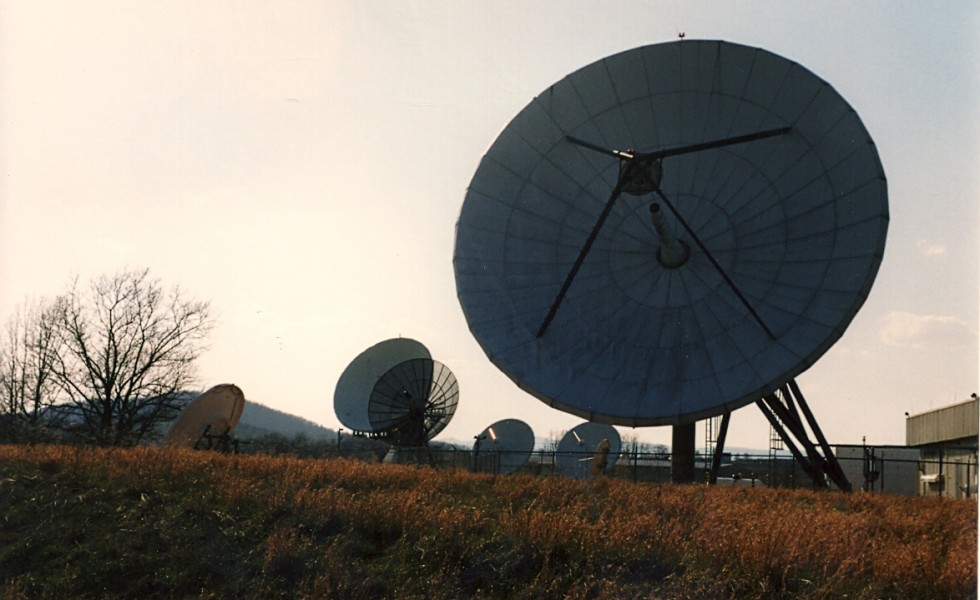Fix Rural Broadband’s Leaky, Creaky Net
Posted on June 17, 2014

Moving just six miles from a small central Illinois farm town to an even smaller, rural enclave in 2005 took the lovely Catherine and me from a drafty, big house on a leafy, wide street to a tighter, smaller house in a leafy, wide woods. Fabulous.
On the flip side, however, somewhere during that short move my computer crossed a digital divide that took it from a hardwired, $45-per-month DSL jet to a $90-a-month, horse-and-buggy satellite system that—nine years later!—continues to be powered by squirrels, operated by snails and owned by snakes.
I have plenty of frustrated company. More than 100 million country-dwelling Americans impatiently suffer through Internet download speeds of less than three megabytes per second and upload speeds of less than one megabyte, says Edyael Casaperalta, coordinator of the Rural Broadband Policy Group.
“That means for most of rural America,” Casaperalta offers, “broadband Internet isn’t a highway to tomorrow. It’s a highway to yesterday.” (Read more about rural broadband at http://live-farm-and-food-file.pantheonsite.io/in-the-news/).
We country folk know. Our internet service—despite being seen by every government in the world as essential to modern life as electricity and the telephone—is five-, 10-, even 15-times slower than that of our in-town cousins, friends, and colleagues.
Few folks outside of here, however, care.
The reason is simple. No one—especially broadband Internet companies—is required to care, says Casaperalta, because the Federal Communications Commission, the government agency that oversees public airwaves, never declared Internet service a “Title II” common carrier, essentially a public utility like electricity and telephone service.
As such, Internet providers go where the dough rises, populated areas that yield the greatest return on per-mile investment. And that’s not rural America.
Moreover, Internet providers have fended off any FCC hint to make Internet service a Title II carrier. That mean Big Broadband won’t be coming to the country anytime soon because, without that declaration, they don’t have to.
Rural residents pay a steep price for that forget-you business model.
For example, “More and more of local education is on-line, today,” explains Casaperalta; “practice tests, school schedules, teacher contact, even daily lessons arrive through the Internet. If rural America continues to have poor or slow Internet service it will continue to lose ground to everyone everywhere in education.”
The Title II question resurfaced in late April when FCC Chairman Thomas Wheeler proposed rules that would allow broadband Internet providers like Verizon and AT&T to charge content providers—such as Internet movie streaming mogul Netflix—a higher price for faster delivery speeds.
The very idea of creating “fast lanes” and “slow lanes” through price infuriated most high tech companies, including Netflix. Most see the Internet as a “neutral” business, information and entertainment platform where every user is equal to every other user regardless of how either uses it.
So why would the FCC chair open this fast lane/ slow lane Pandora’s Box?
Some say it’s in response to Big Broadband’s renewed lobbying against any new consideration of Title II status for the Internet, an ever-present pressure.
Wheeler, say market watchers, may be attempting to finally address it by searching for a middle ground where ‘net neutrality advocates like Google and “fast lane” backers like Verizon can co-exist under today’s light government regulation without splitting the ‘net into a big-money fast lanes and poor-service slow lanes.
Rural America needs to get into that fight, says Casaperalta.
“Everyone’s future will be tied to the Internet,” she says. “Rural or urban, the Internet is where you go to apply for jobs, attend class, buy plane tickets, talk with family, start a business, get the news.
“That makes it absolutely imperative that we get better broadband service—Title II-type service—to rural areas,” she continues, “before we even talk about fast lanes and slow lanes.”
In short, let’s at least fix the Internet in rural America before we start dreaming up ways to break it.
Share This